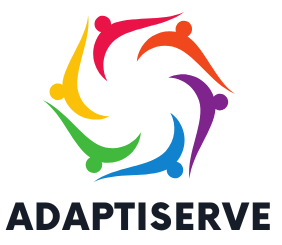In the healthcare realm, the safeguarding of sensitive patient information isn’t just a priority—it’s a legal and ethical obligation. Today, we’ll delve into the complex world of HIPAA compliance within IT services, shedding light on its critical role and the importance of partnering with an IT provider well-versed in healthcare regulations.
Understanding HIPAA Compliance: Protecting Patient Data
HIPAA (Health Insurance Portability and Accountability Act) sets stringent standards for safeguarding patient information. It’s the backbone of patient privacy and security in healthcare, mandating strict guidelines for handling and protecting sensitive medical data.
The Crucial Role of Business Associate Relationships
A vital aspect for healthcare providers involves establishing Business Associate relationships, especially for IT support. These partnerships demand strict adherence to HIPAA regulations by all involved parties, ensuring the robust security of patient data throughout its lifecycle.
A Business Associate includes third-party entities contracted by healthcare providers to handle specific functions involving protected health information (PHI), as mandated by HIPAA regulations. These entities, including IT service providers, consultants, or vendors, engage with patient data during various activities such as setting up crucial systems like email or WiFi access points within healthcare facilities. Despite appearing routine, these tasks carry inherent risks, as mishandling PHI during such operations can lead to severe data breaches. Consequently, Business Associates are bound by law to comply with HIPAA, implementing stringent security measures to safeguard patient confidentiality. Their role is pivotal, fortifying the integrity of healthcare data.
Challenges in Achieving HIPAA Compliance in IT Services
Navigating HIPAA compliance in the IT landscape presents unique challenges. It involves securing networks, encrypting data, ensuring secure transmission, and maintaining strict access controls. The complexity amplifies the need for specialized expertise in healthcare IT compliance.
Strategies for HIPAA Compliance in IT Services
- Thorough Understanding: Begin by comprehensively understanding HIPAA regulations and their implications for IT services in the healthcare sector.
- Tailored Solutions: Implement tailored IT solutions that meet HIPAA’s stringent security and privacy requirements, including encrypted communications and secure data storage.
- Constant Vigilance: Regularly assess and update IT infrastructure to maintain compliance amidst evolving regulations and technological advancements.
The Crucial Role of IT Providers in Healthcare Compliance
Partnering with an IT provider well-versed in HIPAA regulations is paramount. Providers like AdaptiServe understand the intricate demands of HIPAA compliance, offering tailored solutions that fortify healthcare practices against security breaches and legal liabilities.
Conclusion: Prioritizing Patient Security Through Compliance
HIPAA compliance isn’t optional—it’s a non-negotiable commitment to patient privacy and security. By comprehending its significance, acknowledging the challenges, and partnering with knowledgeable IT providers, healthcare practices can fortify their compliance efforts and safeguard patient data effectively.
Eager to bolster your healthcare practice’s compliance measures? Reach out today and let our expertise guide you toward a secure and HIPAA-compliant future.


No responses yet